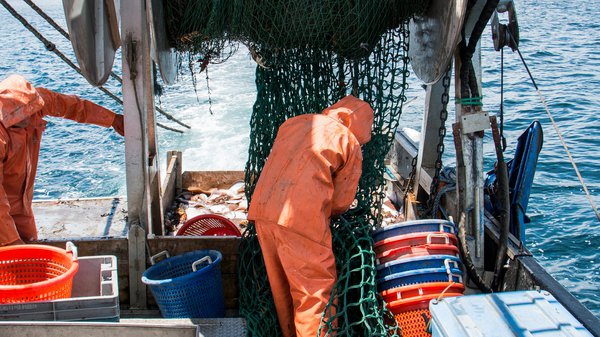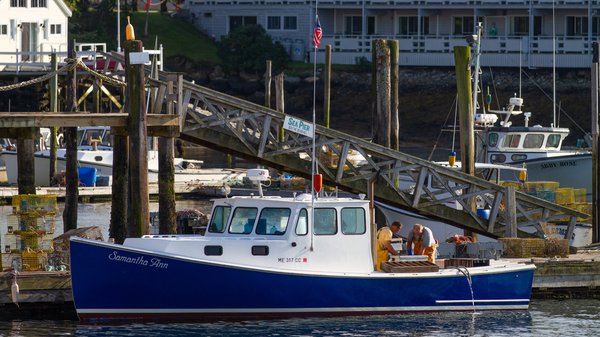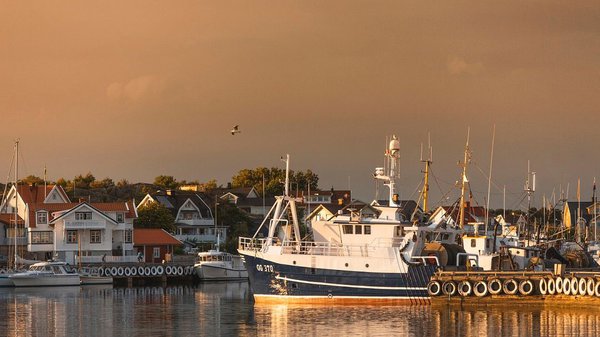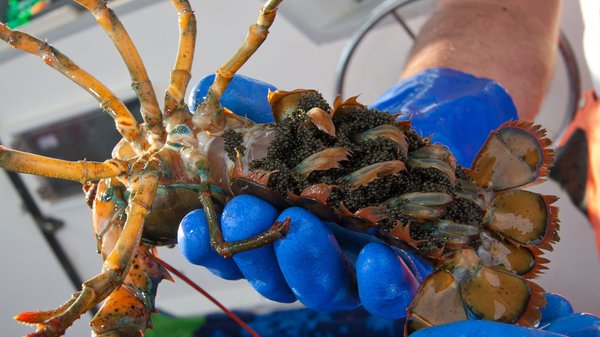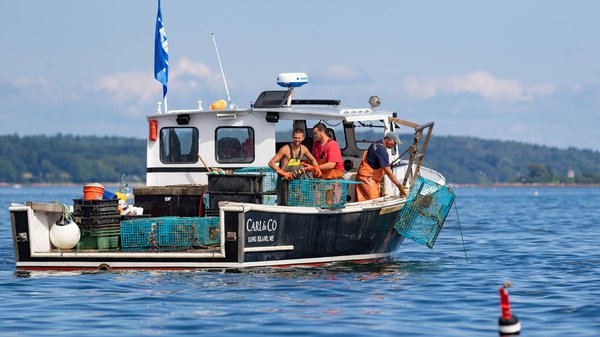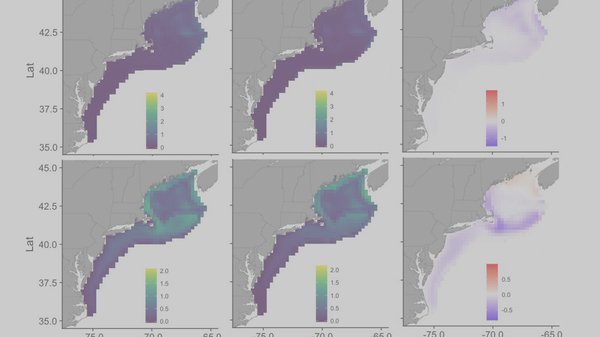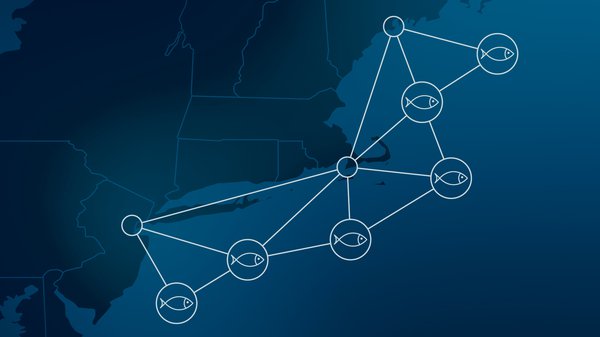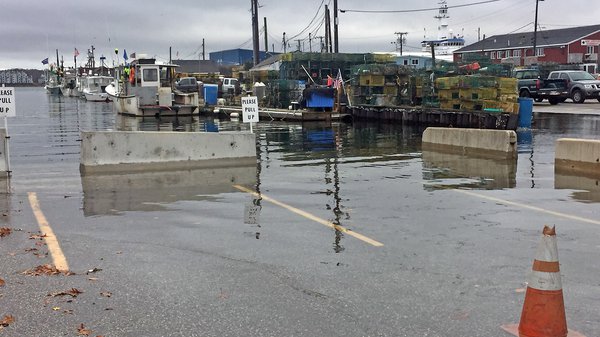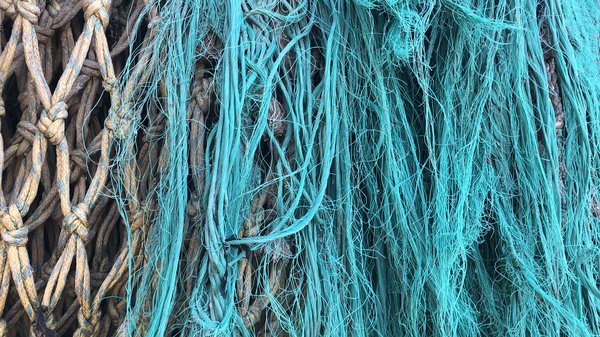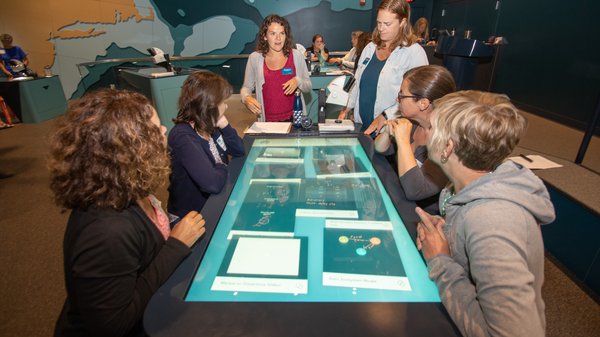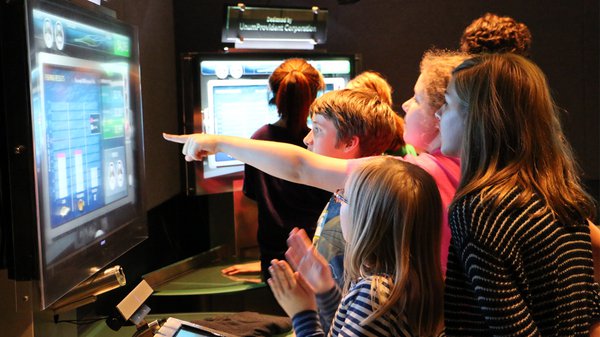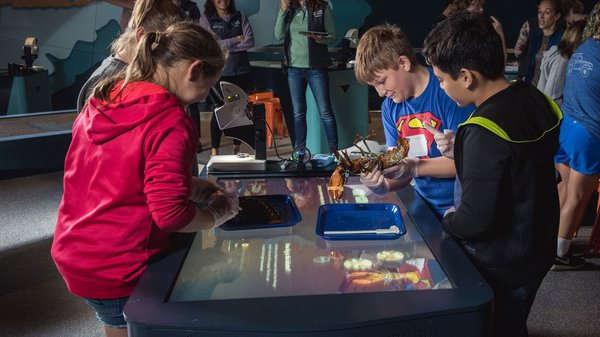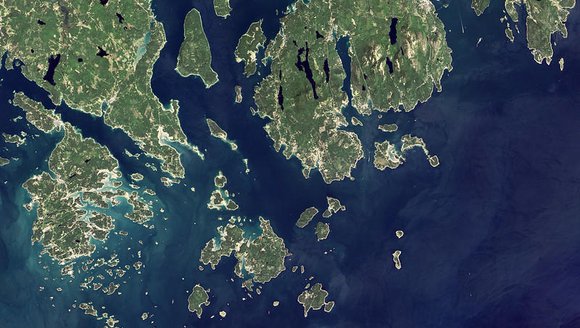Advancing Maine's Climate Action Plan
Announcements | Jun 24, 2021
In June of 2019, Governor Mills signed a bipartisan bill into law forming the Maine Climate Council. The Council, tasked with generating a four-year plan to substantially reduce the state’s greenhouse gas emissions and adapt to the consequences of climate change released that action plan, called Maine Won’t Wait, in December of 2020. Nearly 100 recent or ongoing projects at GMRI align with the strategies, objectives, and actions outlined in that plan. Below, we highlight how these projects contribute to Maine's climate action plan.

Led by Climate Center Director Dr. Dave Reidmiller, our new interdisciplinary center is delivering innovative climate services to the region’s coastal and marine stakeholders. By leveraging our world-class science with our deep community relationships, we’re able to effect the kind of transformative change we need at all levels to ensure coastal communities can continue to thrive in a warmer world.
Launched in late 2019, our Climate Center helps to align our institutional capacities so that we can more effectively address global ocean challenges related to climate change impacts — and by doing so, better support the goals outlined in Maine Won't Wait. Below, we demonstrate the areas of the plan to which GMRI projects contribute the most.
Maine Won’t Wait is an extraordinarily ambitious plan outlining steps that will help us avert the worst impacts of climate change. At GMRI, I’m proud to work with an interdisciplinary team of experts who are leading a variety of projects that advance the implementation of this plan.
Dave Reidmiller, Ph.D. Chief Impact Officer![This is the staff photo for david reidmiller]() Dave Reidmiller, Ph.D. Chief Impact Officer
Dave Reidmiller, Ph.D. Chief Impact Officer
Maine Won't Wait: Eight Strategies
Eight strategies form the backbone of the Maine Won't Wait climate action plan, which aims to set the state on a path toward reducing carbon emissions by 45% by 2030, and 80% by 2050, and to achieve net carbon neutrality by 2045.
Strategy (A): Embrace the Future of Transportation in Maine
Strategy (B) Modernize Maine’s Buildings: Energy-Efficient, Smart and Cost Effective Homes and Businesses
Strategy (C) Reduce Carbon Emissions in Maine’s Energy and Industrial Sectors through Clean-Energy Innovation
Strategy (D) Grow Maine’s Clean-Energy Economy and Protect Our Natural-Resource Industries
Strategy (E) Protect Maine’s Environment and Working Lands and Waters: Promote Natural Climate Solutions and Increase Carbon Sequestration
Strategy (F) Build Healthy and Resilient Communities
Strategy (G) Invest in Climate-Ready Infrastructure
Strategy (H) Engage with Maine People and Communities about Climate Impacts and Program Opportunities
While our work doesn't cover that entire scope of the state's plan (our mission is largely focused on the marine and coastal domains, whereas Maine Won’t Wait addresses every sector and geographic region of the state), it touches more than half of the strategies, with considerable efforts in Strategies (D), (E), and (H) above.
Maine Won't Wait: Mapping GMRI Contributions
To get a more detailed look at all the ways we contribute to the strategies, objectives, and actions laid out in Maine Won't Wait — in addition to the highlights on this page — please explore our report that maps out the nearly 100 recent and ongoing GMRI projects that help advance the plan.
Strategy D: Grow Maine’s Clean-Energy Economy and Protect Our Natural-Resource Industries
One of Strategy D's objectives includes taking advantage of new market opportunities. As climate change continues to impact natural resource sectors of Maine's economy, transitioning to clean energy, implementing adaptations to climate change impacts, and promoting local seafood consumption present not only massive economic opportunities, but the chance to drastically reduce carbon emissions in the process. The plan outlines five clear actions that the state can take to achieve the above objective, and our work contributes significantly to two of these actions:
- Support the ability of Maine’s natural resource economies to adapt to climate change impacts.
- Increase the amount of food consumed in Maine from state food producers from 10% to 20% by 2025 and 30% by 2030, through local food system development.
-
GMRI Projects Supporting Strategy D
Grow Maine’s Clean-Energy Economy and Protect Our Natural-Resource Industries.
- Assessing Allocation Strategies for Fisheries Affected by Climate Change
- Resilience, Adaptation, and Transformation in Lobster Fishing Communities
- Climate Adaptation Strategies for Northeast U.S. Fishing Communities
- Ecosystem Change Indicators for Lobster
- Multi-scale Forecasts and Analyses for the Maine Lobster Fishery
- Evaluating Climate Change Adaptation Strategies
Strategy E: Protect Maine’s Environment and Working Lands and Waters: Promote Natural Climate Solutions and Increase Carbon Sequestration
This strategy includes four distinct objectives:
- Protect Natural and Working Lands and Waters.
- Develop New Incentives to Increase Carbon Storage.
- Expand Outreach to Offer Information and Technical Assistance.
- Enhance Monitoring and Data Collection to Guide Decisions.
While work at GMRI contributes to all four of the above objectives, our projects most significantly advance the final two. Our efforts range from using integrated modeling techniques to generate more forward-looking fisheries decision-making processes to engaging citizens to track and identify adaptations to sea level rise.
-
GMRI Projects Supporting Strategy E
Protect Maine’s Environment and Working Lands and Waters: Promote Natural Climate Solutions and Increase Carbon Sequestration
- Climate and Fisheries Data Dashboard
- Northeast Climate Integrated Modeling (NCLIM)
- The Open Knowledge Network to Meet Ocean Decision Challenges (OceanOKN)
- Coastal Flooding Community Science
- Gulf of Maine Temperature Trends
Strategy H: Engage with Maine People and Communities about Climate Impacts and Program Opportunities
Tackling the challenges ahead stemming from climate change impacts will take us all. This global challenge requires that everyone understand the stakes, the impacts, and the potential for solutions and adaptations. This means that raising awareness and understanding about both the impacts and opportunities ahead is a critical step toward achieving resilient and sustainable communities and economies. Of the four objectives under Strategy H, efforts at GMRI particularly bolster the following two:
- Raise Awareness About Climate-Change Impacts and Opportunities.
- Increase Public Education Offerings Related to Climate and Energy.
-
GMRI Projects Supporting Strategy H
Engage with Maine People and Communities about Climate Impacts and Program Opportunities
- Future Fisheries Experience
- Preparing Communities for Sea Level Rise
- Modeling Change
- Real World, Real Science
- LabVenture
